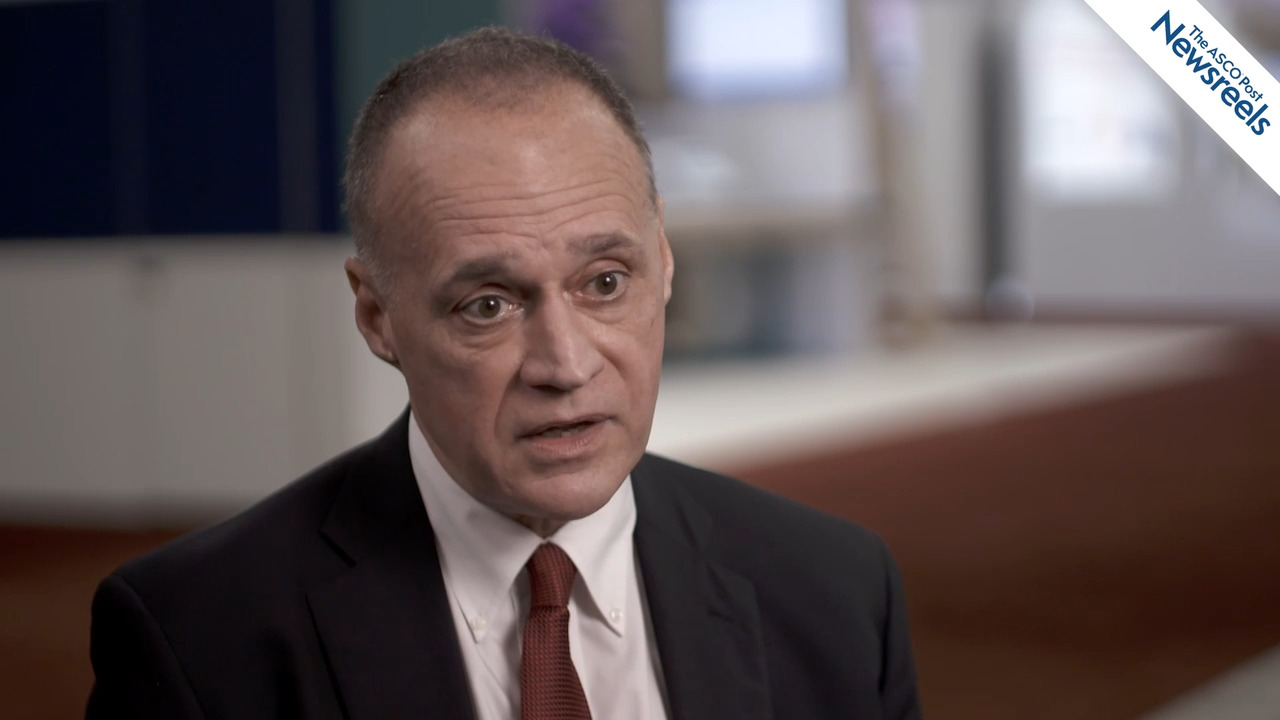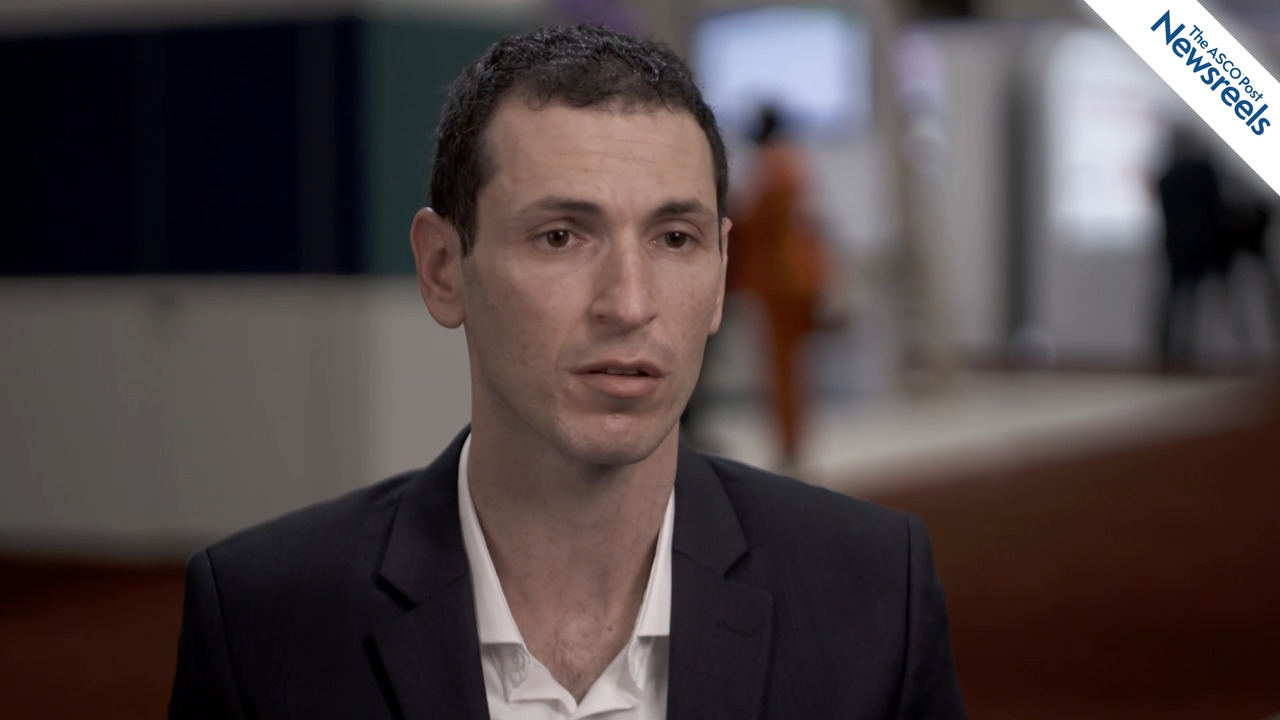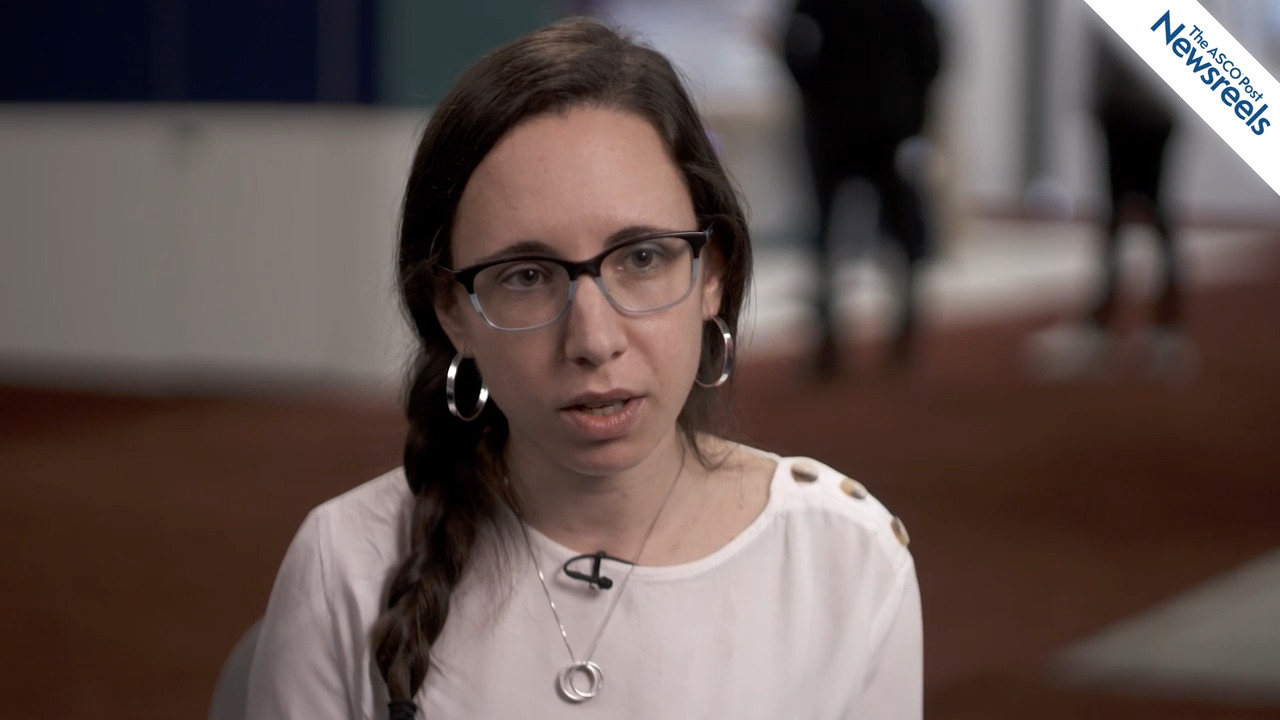Anil Aktas-Samur, PhD, on Identifying Low-Risk Smoldering Multiple Myeloma
2021 ASH Annual Meeting & Exposition
Anil Aktas-Samur, PhD, of Dana-Farber Cancer Institute, discusses study findings on the genomic characterization of non-progressor smoldering multiple myeloma, results that may provide a molecular definition of the disease as well as its risk-driving features. Combining this low-risk model with current high-risk models may possibly improve clinical trials for patients with this early precursor to myeloma (Abstract 545).
The ASCO Post Staff
Daniel A. Ermann, MD, of the Huntsman Cancer Institute, University of Utah, discusses results from the largest retrospective study on outcomes utilizing radiotherapy in early-stage diffuse large B-cell lymphoma. Adding radiation to front-line multiagent chemotherapy was associated with a survival benefit for all patients with early-stage disease. An overall survival benefit was seen with the addition of radiation to front-line multiagent chemotherapy for patients with nodal involvement and those with specific extranodal involvement in the testes, thyroid, skin and soft tissue, and head and neck (Abstract 49).
The ASCO Post Staff
Michael R. Bishop, MD, of the University of Chicago, discusses insights from findings of the phase III BELINDA study, which may inform the design of future CAR T-cell trials, as well as the use of second-line tisagenlecleucel therapy in patients with relapsed or refractory aggressive B-cell non-Hodgkin lymphoma (Abstract LBA-6).
The ASCO Post Staff
Roni Shouval, MD, PhD, of Memorial Sloan Kettering Cancer Center, discusses his findings, which show, for the first time, that TP53 alterations are a valuable prognostic and potentially predictive marker in patients with large B-cell lymphoma who receive CD19–CAR T-cell therapy. Gene-expression profiling suggests that TP53 alterations result in an immunosuppressive tumor microenvironment and impaired apoptosis signaling, which could lead to decreased CAR T-cell therapy efficacy (Abstract 710).
The ASCO Post Staff
Leslie S. Kean, MD, PhD, of Dana-Farber/Boston Children's Cancer and Blood Disorders Center, discusses findings from her analysis of the International Blood and Marrow Transplant Research Database, which led to the recent FDA approval of abatacept for the prevention of acute graft-vs-host disease (GVHD) in adult and pediatric patients. The data suggest improved overall survival with the immunosuppressant abatacept in combination with a calcineurin inhibitor and methotrexate following 7/8 HLA–matched unrelated allogeneic hematopoietic stem cell transplantation (Abstract 3912).
The ASCO Post Staff
Alba Rodriguez-Meira, DPhil, of the University of Oxford, discusses a comprehensive analysis of the genetic, cellular, and molecular landscape of TP53-mediated transformation, providing insights into the evolution of chronic hematologic malignancies toward an aggressive acute leukemia. Because TP53 is the most commonly mutated gene in human cancer, these findings may well be of broad relevance (Abstract 3).





